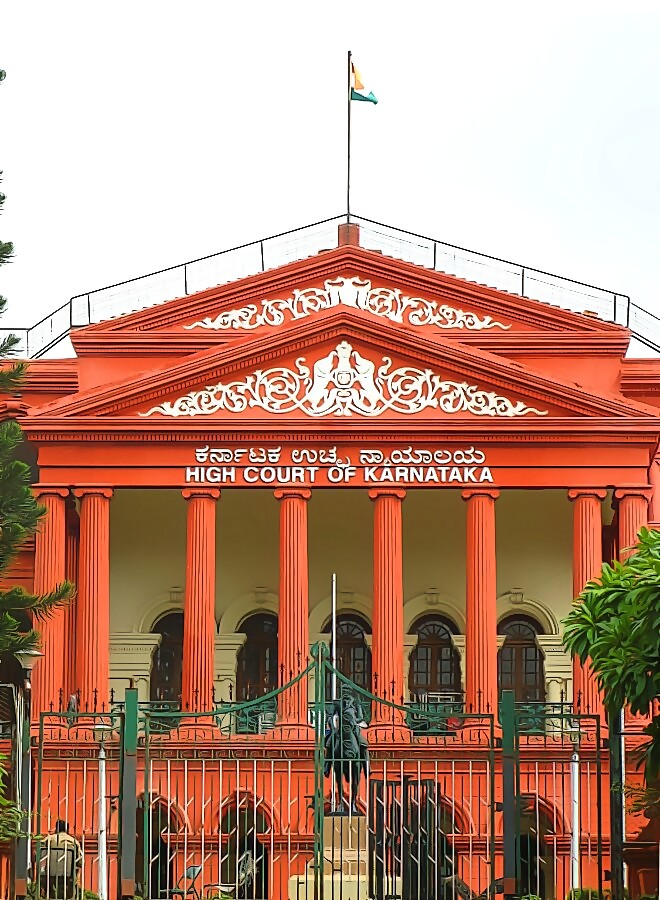Subjecting rape-accused for drawing of blood sample in order to test paternity of child does not amount to violation of Article 20(3) of Constitution of India : Karnataka HC

Read Judgment: Malappa @ Malingaraya vs. State Of Karnataka
Pankaj Bajpai
Bengaluru, January 6, 2022: While noticing that the child born to the victim is no more and thus there is no impingement on the paternity of the child, the Karnataka High Court (Kalaburagi Bench) has opined that in deserving cases, the Court can direct for DNA test and there is no prohibition for ordering DNA test and the same is subject to each facts and circumstances of the case.
The Bench of Justice H.P Sandesh observed that the Magistrate had secured the accused and examined him (in camera) and explained the consequences and thereafter he gave the consent and the Magistrate directed the CMO and also the Investigating Officer to follow the procedure as laid down u/s 53, 53A and 164A of CrPC.
Only in compliance of the same and on the consent of the accused, which has been recorded in the order sheet, the Magistrate ordered to draw the blood sample, added the Single Judge.
The present petition had been filed seeking a writ of certiorari to quash the order subjecting Malappa (Petitioner) for DNA test and also seeking to quash the DNA report which was obtained to prove rape charges, urging that the very order dated 4th and 5th January,2017 and the DNA report and final opinion dated March 30, 2017, are against the principle of natural justice and violative of Article 20(3) of the Constitution of India.
It was contended that the petitioner never consented to undergo DNA profiling and for that purpose to give his blood sample. The petitioner filed objections to the requisition for drawing the sample for the purpose of DNA by the Investigating Officer. Thereafter, one more requisition was filed for drawing the blood sample from the petitioner and the Magistrate without following the procedure contemplated u/s 164 of the Cr.P.C., also resulted in violation of Article 20(3) of the Constitution of India, ordered to draw the blood sample.
After considering the submissions, the High Court found that that prior to amending Section 53 of Cr.P.C. and explanation and Section 53A, there was no specific provision for conducting DNA test and it was a practice and having felt the difficulties of the Investigating Officer in unearthing the truth, the parliament felt that it is necessary to bring an amendment and hence amendment was brought in 2005 by Act 25/2005 substituting the explanation which came to effect from June 23, 2006 in respect of Sections 53A and 54 of Cr.P.C. i.e., examination by registered medical practitioner.
In the explanation it is made clear regarding examination that it shall include the examination of blood, blood stains, semen, swabs in case of sexual offences, sputum and sweat, hair samples and finger nail clippings by use of modern and scientific techniques including DNA profiling and such other tests which the registered medical practitioner thinks necessary in a particular case, added the Court.
Justice Sandesh stated that the very contention of the petitioner that subjecting him for drawing of blood sample in order to test the paternity of the child amounts to violation of Article 20(3) of the Constitution of India and amounts to self-incrimination, cannot be accepted.
“It is the specific case of the victim that when she was on coolie work along with the accused, he subjected her for sexual act against her wish and also he promised to marry her and caused the life threat not to reveal the same. When she became pregnant, the parents have noticed the body development and on enquiry only, she revealed the same and the accused retorted that what evidence they are having to say that on account of his act, she became pregnant”, noted the Single Judge.
The High Court therefore dismissed the petition, concluding that the Magistrate has applied the judicious mind and having considered Sections 53 and 53A of CrPC and in compliance of Section 164A of CrPC, while ordering for DNA test.
Sign up for our weekly newsletter to stay up to date on our product, events featured blog, special offer and all of the exciting things that take place here at Legitquest.




Add a Comment